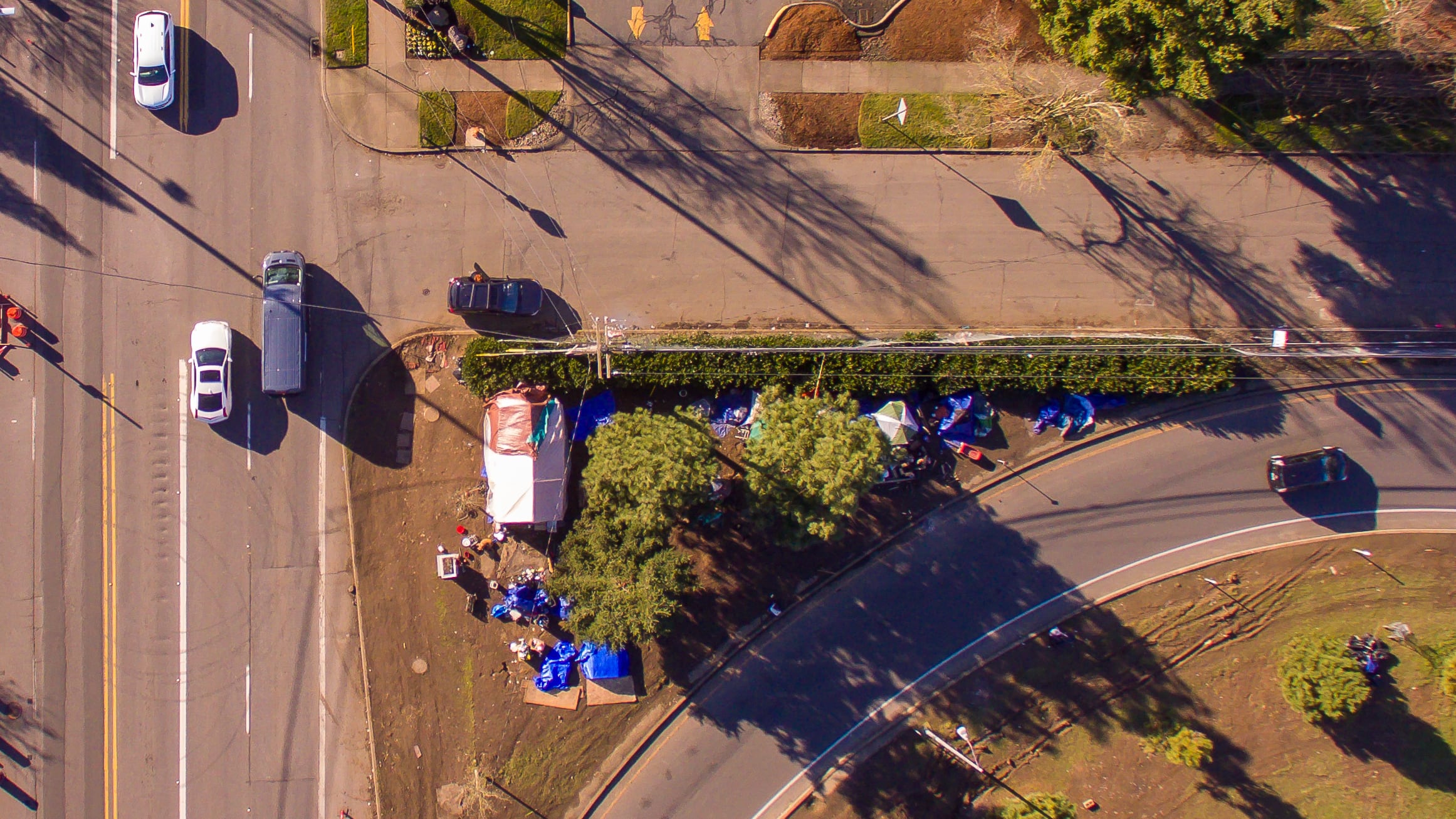Last month, an eight-page memo written by mayoral aide Sam Adams caused a commotion. It proposed building up to three mass shelters with a capacity of 1,000 each, and staffing them with unarmed National Guard troops and social work students.
Other elected officials and housing nonprofit leaders quickly condemned the idea. Portland Mayor Ted Wheeler did not.
In fact, his actions over the past five weeks indicate he supports it—or at least parts of it.
Last week on Oregon Public Broadcasting’s Think Out Loud, Wheeler told host Dave Miller as much. “What it was, was an attempt to move people into safer locations,” Wheeler said. “We should at least have the discussion about what pieces of that are workable, what parts of this solution makes sense.”
Wheeler has already adopted several of those pieces.
In a series of emergency declarations since Feb. 4, Wheeler has assumed authority over bureaus he wouldn’t otherwise have in Portland’s weak-mayor form of government. Wheeler’s declarations over the past month have borrowed heavily from building blocks of Adams’ memo.
Below is a checklist of seven things Adams recommended in his plan, and whether Wheeler has acted on them yet.
1. Use eminent domain to take control of private land for public use as a shelter or camping space.
PARTIALLY COMPLETE. The mayor used eminent domain to compel developer James Winkler, who owns the recently announced safe rest village property along Northwest Naito Parkway near Union Station, into lease negotiations with the city. However, Adams calls the seizure a “friendly condemnation”—Winkler agreed to enter negotiations without pushback.
2. Create shelter availability for 3,000 homeless Portlanders.
INCOMPLETE. The city and county have roughly 1,600 shelter beds available per night. Two weeks after Adams’ memo was first reported, Wheeler floated his own idea: large sanctioned camping sites with occupancy fewer than 1,000 but more than the safe rest villages, which will house up to 60 people each. While Wheeler said initially his plan was incumbent on state funding—which Portland did not receive in the latest legislative session—spokesman Rich Chatman later told WW that Wheeler “does recognize that we may need to resort to other creative methods to fund these critical resources.”
3. Use emergency decrees to “cut through processes that are fine for everyday work but not in a crisis.”
COMPLETED. Wheeler has used his emergency powers three times now to address homelessness. When asked last week how many more declarations would follow, he said: “Indeterminate, and as many as necessary.”
4. “Create a multistate, county and city coalition to ask for federal recognition of houselessness disaster.”
NOT ATTEMPTED. No group of cities or counties has publicly asked for federal recognition of a disaster. However, a group of cities including Portland requested $50 million from the Oregon Legislature during its recently ended session, but only garnered $25 million total—and Portland’s portion went to Multnomah County to distribute.
5. Eventually prohibit all unsanctioned camping, starting with clearing camps near “schools, medical facilities, shelters, ADA violators, and in camps located in higher-speed transportation locations.”
PARTIALLY COMPLETE. On Feb. 4, Wheeler banned camping along highways and the city’s most dangerous streets. He also banned camping within 150 feet of the safe rest villages. He has not announced clearing of camps that obstruct disability access structures or lie close to hospitals.
6. Use an “emergency disaster approach of a larger campus(es)” that can streamline services to homeless Portlanders.
COMPLETED. Last week, Wheeler announced an emergency declaration that aims to streamline homeless services and outreach by creating a centralized outreach system led by Mike Myers, the city’s community safety transition director. Bureaus that deal with homelessness will report to Myers. He’ll report to the mayor. Wheeler aims to have the center up and running by the summer.
7. End the need for unsanctioned camps entirely.
INCOMPLETE. It remains unclear what exactly Wheeler’s endgame is—but it is clear he’s looking to quickly increase shelter capacity and expand prohibitions on camping. One possible reason, per Adams’ memo: To avoid lawsuits over trash pileups. (Local nonprofits, alarmed by his plan, challenged the city and county instead to house 3,000 people in permanent dwellings that already exist, such as motels, and by signing master leases.) Chatman says that bans on camping near schools, medical facilities and disabled access points are “on the list for the potential next phases” and added that the mayor “has reiterated many times that his primary objective with the emergency declarations is the health and safety of our unsheltered Portlanders.”
A previous version of this story identified 1,300 shelter beds across the county. There are currently 1,600 beds. WW regrets the error.
